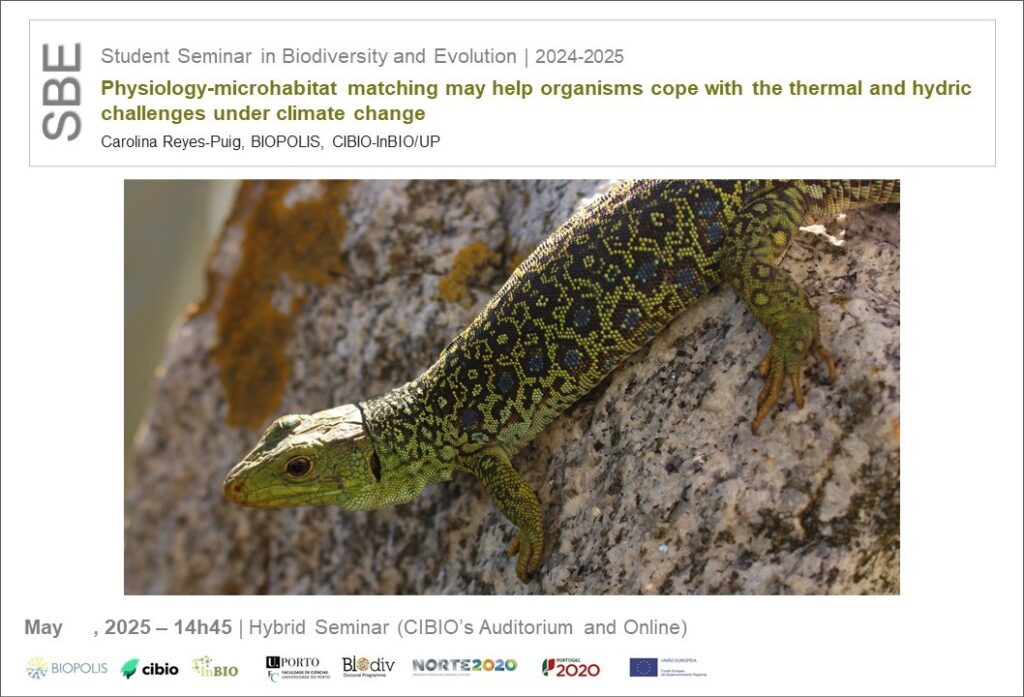
Physiology-microhabitat matching may help organisms cope with the thermal and hydric challenges under climate change
Carolina Reyes-Puig, BIOPOLIS, CIBIO-InBIO/UP
May 23, 2025 | 14h45 | Hybrid Seminar (Zoom Link: https://videoconf-colibri.zoom.us/j/99764286136)
Climate change is impacting biodiversity, especially ectotherms, which are highly vulnerable due to their dependence on external environmental conditions. Microhabitats can provide refuge and mitigate impacts like water and heat stress. Using a mechanistic modelling approach, we assessed how microhabitat variability and physiological traits influence lizards’ activity, preferred temperature, shade selection, and water loss in northern Portugal. Microhabitats were classified using high-resolution geospatial data, and biophysical models were applied to simulate organismal responses under current and future climate scenarios (+2°C and +4°C). The NicheMapR microclimate model was calibrated with field data, and steady-state ectotherm models were used to extract physiological responses. Results showed differences between species. Timon lepidus, the larger species, exhibited higher foraging and basking activity in open rocky habitats, while Lacerta schreiberi relied on shaded, vegetated areas and experienced higher size-corrected water loss. Terrain properties such as slope and aspect influenced responses, with both species foraging more in low-slope areas. Shade selection and water loss were higher on steeper slopes and in north and west facing aspects for L. schreiberi. Climate projections indicate increased activity time under warming, but at a cost of higher water loss and shade needs, particularly for L. schreiberi. These findings emphasize the importance of microhabitats conservation as thermal refuges under climate change.
More information here